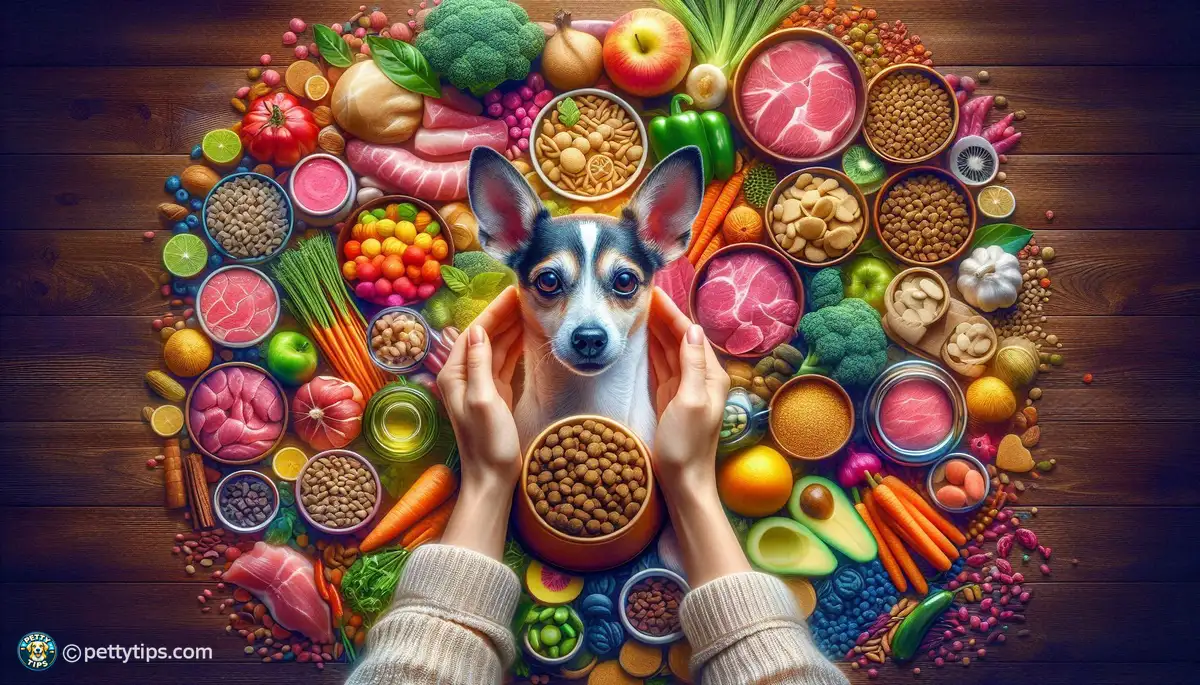
Safeguarding Your Pet Against Household Hazards
Chiara Rinaldi - Sep 21, 2024 - 6 min read


Nutrition is the cornerstone of your pet's health and well-being. Just like us, pets require a balanced diet to thrive. However, understanding what constitutes a balanced diet for your furry friend can sometimes feel like navigating a maze. But fear not! By delving into the basics of pet nutrition, you'll be better equipped to meet your pet's dietary needs.
When crafting a diet plan for your pet, it's essential to consider various factors that influence their nutritional requirements. Factors such as age, breed, size, activity level, and underlying health conditions can all play a significant role in determining what and how much your pet should eat. Tailoring your pet's diet to meet their specific needs is crucial for ensuring their optimal health and longevity.
Just like humans, pets can suffer from nutritional deficiencies if their diet lacks essential nutrients. These deficiencies can manifest in various ways, including lethargy, dull coat, digestive issues, and even serious health problems. By familiarizing yourself with the signs of nutritional deficiencies, you can promptly address any issues and adjust your pet's diet accordingly to ensure they remain happy and healthy.
Water is often overlooked but is perhaps the most critical nutrient for your pet. adequate hydration is essential for maintaining proper bodily functions, regulating body temperature, and supporting overall health. Make sure your pet always has access to fresh, clean water to drink. Additionally, incorporating moisture-rich foods into their diet can help ensure they stay hydrated, especially for pets who may be reluctant water drinkers.
Before embarking on any dietary changes for your pet, it's essential to consult with your veterinarian. They can provide valuable insights into your pet's specific nutritional needs based on factors such as age, breed, and health status. Your vet can also help you develop a personalized diet plan tailored to your pet's requirements, ensuring they receive the optimal balance of nutrients for their well-being.
With a myriad of pet food options available on the market, choosing the right one for your furry friend can feel overwhelming. Whether you opt for commercial pet food or prefer a homemade diet, it's essential to select high-quality, nutritionally balanced options that meet your pet's dietary needs. Look for foods that list real meat as the primary ingredient and avoid those containing artificial additives, fillers, or by-products.
Just like humans, pets can benefit from a diverse diet that includes a variety of foods. Rotating between different protein sources, such as chicken, beef, fish, and lamb, can help prevent dietary imbalances and keep mealtime exciting for your pet. Additionally, incorporating fruits and vegetables into their diet can provide essential vitamins, minerals, and antioxidants to support their overall health and well-being.
Maintaining the appropriate portion sizes is crucial for preventing obesity and maintaining your pet's optimal weight. Overfeeding can lead to weight gain and related health issues, while underfeeding can result in nutritional deficiencies and poor health. Follow the feeding guidelines provided by your veterinarian or pet food manufacturer, and monitor your pet's body condition regularly to ensure they're receiving the right amount of food for their needs.
Consistency is key when it comes to feeding your pet. Establishing a regular feeding schedule can help regulate their appetite, prevent overeating, and promote healthy digestion. Choose specific times of day to feed your pet and stick to them as closely as possible. Avoid leaving food out all day, as this can lead to grazing behavior and make it challenging to monitor your pet's intake.
While it may be tempting to share your meals with your pet or spoil them with treats, it's essential to practice moderation. Human food can be high in calories, fat, and sodium, which can be harmful to your pet's health if consumed in excess. Stick to pet-safe treats and snacks in moderation, and avoid feeding them table scraps, especially those containing ingredients that are toxic to pets, such as chocolate, onions, and grapes.
Regularly monitoring your pet's weight and overall health is vital for identifying any potential issues early on. Keep an eye on their body condition score, which can help you gauge whether they're underweight, overweight, or at an ideal weight. If you notice any changes in their appetite, energy levels, or bathroom habits, consult with your veterinarian promptly to address any concerns and adjust their diet as needed.
Some pets may have special dietary needs due to allergies, sensitivities, or underlying health conditions. If your pet requires a special diet, work closely with your veterinarian to develop a meal plan that meets their nutritional requirements while addressing any specific dietary restrictions or concerns. Whether it's a grain-free diet for a pet with food allergies or a weight management formula for an overweight pet, prioritize their health and well-being by providing them with the appropriate nutrition they need.